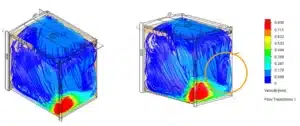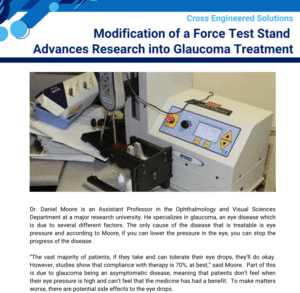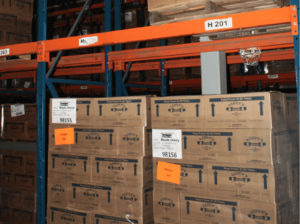Overheating In Mobile Hydraulic Applications
Every hydraulic system is adversely affected by excessive heat. The impact of excessive heat in a hydraulic system can be particularly insidious because of the subtlety of its effects. Over time, excessive heat can lead to system damage due to seal failure as well as hydraulic fluid breakdown. It is important to remember that hydraulic fluid is critical to protection of the metal components in any system and its degradation will lead to shorter component life.
While good design techniques can be employed to reduce overall heat load in a system, it is generally a mistake to believe that good design alone can prevent overheating in the absence of a cooler. Learning what causes excessive heat, and how to reduce that heat, will extend your system components life expectancy. Reducing heat can be as easy as adjusting a relief valve, or as complex as performing a complete heat load analysis, and adding in the proper cooling system. There are many reasons for hydraulic overheating, but here are three that we see most often:
- User improvisation: We often hear of systems that have been running smoothly for years, and now all of a sudden they begin running hot. In many cases this is caused by someone making a system adjustment. One of the more common adjustments made is to the pump compensator to achieve more pressure on pressure compensated variable volume pumps. If the adjustment is made, and it exceeds the main relief valve setting, the excess flow is dumped over the relief valve which induces heat into the system.
- Improper system design: Pressure drop is another heat generator when components are not sized properly. When it takes too much pressure to allow flow through your valves, pipes, hoses, filters, and any other system components, this wasted energy generates excess heat.
- Improper cooling selection: A cooler is almost always required regardless of your system design. This is especially true for mobile machines where reservoir space is limited so you have a smaller amount of available hydraulic oil along with rapid recirculating of that oil. Heat load and available flow are some of the things that have to be accounted when selecting an external cooler. In addition, there are many different types of coolers that fit different systems requirements.
Choosing the correct cooler for your system can be a complex and complicated process. Excessive heat in a hydraulic system will attack every part of that system, and shorten the life of every component. Here at Cross Company, and our Mobile Systems Integration Group, we have a team of engineers that specialize in complete hydraulic systems design to achieve maximum efficiency and proper cooling selection.
How Cross Can Help
If you’re looking for experts in mobile systems (electric systems, hydraulic systems, mobile control components, or anything else), Cross can help. Contact the Mobile Systems Integration specialists at Cross Company today to discuss your application, vehicle, or prototype. We’re members of the National Fluid Power Association (NFPA), the Association of Equipment Manufacturers (AEM), the International Fluid Power Society (IFPS), and closely follow ISO standards for mobile machinery. With our experience and expertise, we can get you where you need to go.




